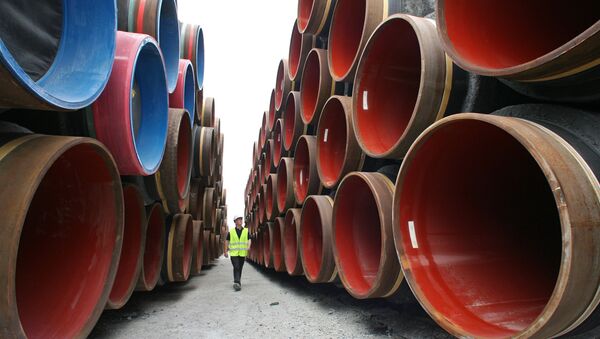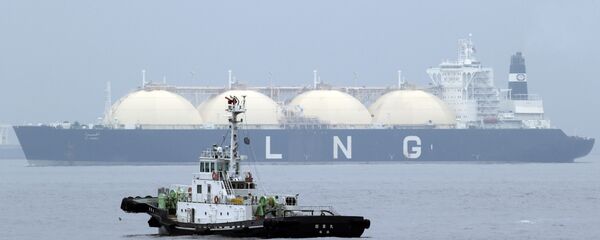The latest package intends to target "key sectors of Russia's economy, including mining, metals, shipping and railways, as well as new investments in energy pipelines."
In particular, new restrictive measures provide for reduced funding of Russian oil and gas companies. The bill also suggests the possibility of imposing sanctions on those who want to invest in the construction of Russian pipelines, or provide Russian energy companies with any services, technologies or data.
German Foreign Minister Sigmar Gabriel and Austrian Chancellor Christian Kern criticized the bill, noting that it is aimed at "promoting sales of American liquified natural gas (LNG) and squeezing Russian natural gas supplies out of the European market."
In an interview with Radio Sputnik, the president of the Russian Union of Oil and Gas Industrialists, Gennady Shmal, noted that the sanctions previously imposed by the US could not prevent the normal operation of the oil and gas industry in Russia, and wouldn't be able to do it now.
"If we talk about the oil and gas complex, these sanctions did not have any significant impact. On the contrary, in recent years the extraction of oil and gas has increased…. Many companies — American, Italian, German ones — continue to work with us. Generally, business was against sanctions from the very beginning, and we see today that American companies continue to work here, many German companies opposed and are opposing the sanctions. I believe that business interests are more important, and with joint efforts these sanctions will be gradually lifted," the expert told Radio Sputnik.
In Shmal's opinion, new potential sanctions against Russia won't significantly change the situation on the gas market in Europe.
"The Americans are trying to organize the supply of their liquefied natural gas to Europe, but I can say with certainty that American LNG will never be cheaper than the Russian gas that is being delivered to Europe nowadays…. I think that the Nord Stream-2 will certainly be built, as well as the Turkish Stream, and, in the future, exports of (Russian) gas to Europe will grow," he concluded.
The first US tanker with liquefied natural gas arrived in Poland earlier last week. However, the cost of shipping natural gas from the United States to Europe remains high and requires sizable infrastructure investments.



